Headline News Archive
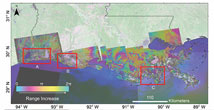 June 28, 2016 (Source: UM RSMAS) - As Louisiana’s wetlands continue to disappear at an alarming rate, a new study has pinpointed the man-made structures that disrupt the natural water flow and threaten these important ecosystems. The findings have important implications for New Orleans and other coastal cities that rely on coastal wetlands to serve as buffer from destructive extreme weather events. Scientists at the University of Miami (UM) Rosenstiel School of Marine and Atmospheric Science found that man-made canals limit the natural tidal inundation process in roughly 45 percent of the state’s coastline, and disruptions from levees accounted for 15 percent. “This study demonstrates that human infrastructure development along coastal areas have long-term consequences on the ability of coastal wetlands to adapt to sea-level rise and other processes that reduce the size of coastal wetlands,” said Talib Oliver-Cabrera, the study’s first author and a UM Rosenstiel School Ph.D. student.
June 28, 2016 (Source: UM RSMAS) - As Louisiana’s wetlands continue to disappear at an alarming rate, a new study has pinpointed the man-made structures that disrupt the natural water flow and threaten these important ecosystems. The findings have important implications for New Orleans and other coastal cities that rely on coastal wetlands to serve as buffer from destructive extreme weather events. Scientists at the University of Miami (UM) Rosenstiel School of Marine and Atmospheric Science found that man-made canals limit the natural tidal inundation process in roughly 45 percent of the state’s coastline, and disruptions from levees accounted for 15 percent. “This study demonstrates that human infrastructure development along coastal areas have long-term consequences on the ability of coastal wetlands to adapt to sea-level rise and other processes that reduce the size of coastal wetlands,” said Talib Oliver-Cabrera, the study’s first author and a UM Rosenstiel School Ph.D. student.
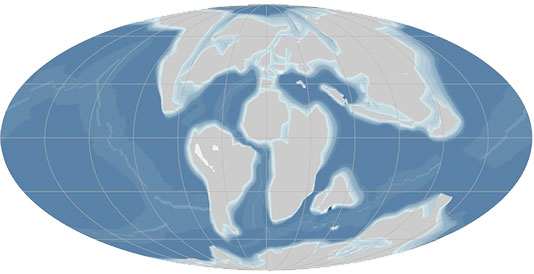 June 22, 2016 - A major climate event millions of years ago that caused substantial change to the ocean’s ecological systems may hold clues as to how the Earth will respond to future climate change, a Florida State University researcher said.
June 22, 2016 - A major climate event millions of years ago that caused substantial change to the ocean’s ecological systems may hold clues as to how the Earth will respond to future climate change, a Florida State University researcher said.
In a new study published in Earth and Planetary Science Letters, Assistant Professor of Geology Jeremy Owens explains that parts of the ocean became inhospitable for some organisms as the Earth’s climate warmed 94 million years ago. As the Earth warmed, several natural elements — what we think of as vitamins — depleted, causing some organisms to die off or greatly decrease in numbers.
The elements that faded away were vanadium and molybdenum, important trace metals that serve as nutrients for ocean life. Molybdenum in particular is used by bacteria to help promote nitrogen fixation, which is essential for all forms of life.
“These trace metals were drawn down to levels below where primary producing organisms, the base of the ocean food chain, can survive,” Owens said. “This change inhibited biology.”
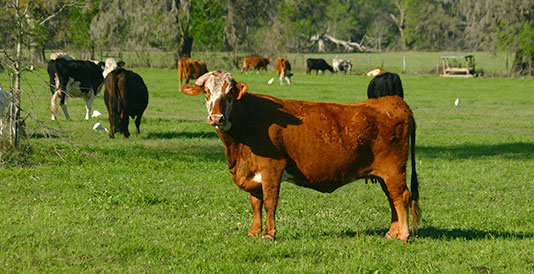 June 22, 2016 - University of Florida Institute of Food and Agricultural Sciences researchers hope to reduce possible pollutants emanating from soils in Florida cattle ranches by using a $710,000 USDA grant to study soil microbes.
June 22, 2016 - University of Florida Institute of Food and Agricultural Sciences researchers hope to reduce possible pollutants emanating from soils in Florida cattle ranches by using a $710,000 USDA grant to study soil microbes.
In the new study, UF/IFAS researchers will use lab and field studies to investigate how pasture management and factors such as temperature and rainfall affect soil microbes. They’ll also look for genetic markers to get a glimpse into microbial identity. Genetic markers are genes or short sequences of DNA scientists use to find other genes on a genetic map.
“The goal is to put together a model that can predict the release of greenhouse gases like carbon dioxide and nitrous oxide from soils under a climate that is expected to be warmer and experience more extreme dry and wet periods across the Southeast,” said Stefan Gerber, a UF/IFAS assistant professor in soil and water sciences and one of the investigators on the new study.
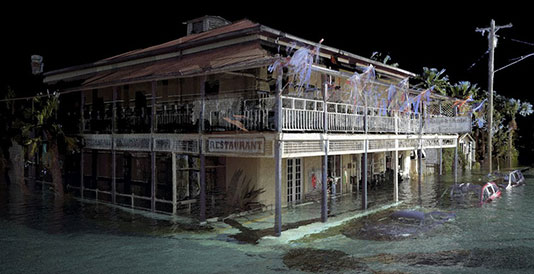 June 1, 2016 - The Summer 2016 issue of the University of Florida's Explore magazine is now out and features the Florida Climate Institute at UF Director, co-Director, and several affiliated faculty. See http://explore.research.ufl.edu/ for the online version of several of the stories that the magazine features. The climate-themed issue includes stories on sea-level rise, coastal planning, agriculture, energy efficiency, economics, design, health, coastal forestry, and humanities.
June 1, 2016 - The Summer 2016 issue of the University of Florida's Explore magazine is now out and features the Florida Climate Institute at UF Director, co-Director, and several affiliated faculty. See http://explore.research.ufl.edu/ for the online version of several of the stories that the magazine features. The climate-themed issue includes stories on sea-level rise, coastal planning, agriculture, energy efficiency, economics, design, health, coastal forestry, and humanities.
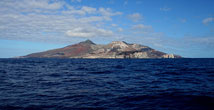 May 24, 2016 (Source: UM RSMAS) - Paquita Zuidema, a scientist at the University of Miami (UM) Rosenstiel School of Marine and Atmospheric Science, is leading an upcoming international research campaign to study a significant contributor to regional climate warming - smoke. The first-of-its-kind research experiment begins on June 1, 2016 from Ascension Island in the southeastern Atlantic Ocean. The experiment, called LASIC (Layered Atlantic Smoke Interactions with Clouds), is part of a broader international scientific collaboration led by the Atmospheric Radiation Measurement (ARM) Climate Research Facility deployment. The broad collaboration is detailed in a new article in the July Bulletin of the American Meteorological Society.
May 24, 2016 (Source: UM RSMAS) - Paquita Zuidema, a scientist at the University of Miami (UM) Rosenstiel School of Marine and Atmospheric Science, is leading an upcoming international research campaign to study a significant contributor to regional climate warming - smoke. The first-of-its-kind research experiment begins on June 1, 2016 from Ascension Island in the southeastern Atlantic Ocean. The experiment, called LASIC (Layered Atlantic Smoke Interactions with Clouds), is part of a broader international scientific collaboration led by the Atmospheric Radiation Measurement (ARM) Climate Research Facility deployment. The broad collaboration is detailed in a new article in the July Bulletin of the American Meteorological Society.
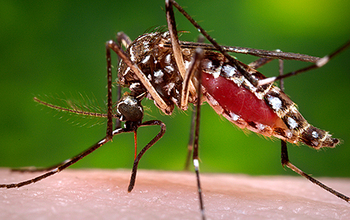 May 12, 2016 - Dr. Sadie Ryan (Assistant Professor of Medical Geography in the Department of Geography and UF’s Emerging Pathogen Institute) and colleagues, have just received a National Science Foundation (NSF) Division of Environmental Biology’s Ecology and Evolution of Infectious Diseases (EEID) Program rapid response, or RAPID grant to study the socio-ecology and climate responses of Zika virus transmission by Aedes aegypti mosquitoes in southern coastal Ecuador. By analyzing blood samples, deploying climate sensors, and conducting socio-ecological surveys, the researchers will gain insight into the spread of Zika as climate, altitude and socioeconomic levels change.
May 12, 2016 - Dr. Sadie Ryan (Assistant Professor of Medical Geography in the Department of Geography and UF’s Emerging Pathogen Institute) and colleagues, have just received a National Science Foundation (NSF) Division of Environmental Biology’s Ecology and Evolution of Infectious Diseases (EEID) Program rapid response, or RAPID grant to study the socio-ecology and climate responses of Zika virus transmission by Aedes aegypti mosquitoes in southern coastal Ecuador. By analyzing blood samples, deploying climate sensors, and conducting socio-ecological surveys, the researchers will gain insight into the spread of Zika as climate, altitude and socioeconomic levels change.
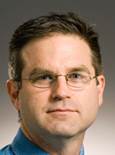 May 2, 2016 - In May 2016, Professor Greg Kiker, Department of Agricultural & Biological Engineering at UF, will visit the University of Oxford Environmental Change Institute (Oxford-ECI) and its research partners, as the first FCI UF-UK fellow, to establish a framework to integrate models from Oxford-ECI and UF into more localized household-scale models for analysis in six countries in Africa and Southeast Asia. This collaboration will help UF, Oxford and the International Livestock and Research Institute (ILRI) to focus research and outreach towards sustainable livestock systems. Dr. Kiker will work with Drs. John Ingram, Steven Lord, Joost Vervoort and Ariella Helfgott (Oxford-ECI) to translate recently developed climate change scenarios and household vulnerability research into both conceptual frameworks and computational models for west and east Africa. This effort is part of the newly established Feed the Future Innovation Lab for Livestock Systems at UF to focus research and outreach towards sustainable livestock systems.
May 2, 2016 - In May 2016, Professor Greg Kiker, Department of Agricultural & Biological Engineering at UF, will visit the University of Oxford Environmental Change Institute (Oxford-ECI) and its research partners, as the first FCI UF-UK fellow, to establish a framework to integrate models from Oxford-ECI and UF into more localized household-scale models for analysis in six countries in Africa and Southeast Asia. This collaboration will help UF, Oxford and the International Livestock and Research Institute (ILRI) to focus research and outreach towards sustainable livestock systems. Dr. Kiker will work with Drs. John Ingram, Steven Lord, Joost Vervoort and Ariella Helfgott (Oxford-ECI) to translate recently developed climate change scenarios and household vulnerability research into both conceptual frameworks and computational models for west and east Africa. This effort is part of the newly established Feed the Future Innovation Lab for Livestock Systems at UF to focus research and outreach towards sustainable livestock systems.
Food systems exist in an increasingly unpredictable and inequitable world as climate drivers and market dynamics do not often align for the benefit of local livelihoods. Livestock sectors also share this challenge as increasing international demand for livestock products does not translate to increased growth opportunities at the household level.
For more information on the program, click here.
April 25, 2016 - With a $5,000,000 grant from the National Science Foundation, Florida International University will establish the Center for Aquatic Chemistry and the Environment (CREST). The 5-year project will be led by Todd A. Crowl. Additional researchers are Rudolf Jaffe, Rene M. Price, Shu-Ching Chen, Laird H. Kramer.
Human-derived environmental contaminants consist of antibiotics and pharmaceuticals, mercury, black carbon, and fossil fuels. These stressors are recognized as having significant effects on ecosystems and biota as well as on human wellbeing. It is critical to understand the biogeochemical processes that govern the fate of these compounds and their impacts on the ecosystem. Center for Aquatic Chemistry and the Environment research will address the sources, transport, transformation and ecosystem responses to contaminants, pollutants and other natural stressors, under changing land-use and environmental conditions.
The Center for Aquatic Chemistry and the Environment will generate significant new knowledge regarding contaminants and pollutants in aquatic environments, as well as produce innovative methodologies for detecting and assessing contaminant quantities and impacts, including the use of molecular detection techniques. The proposed research will advance current efforts on the biological effects, transport, transformation and distribution of contaminants in the environment into new collaborative research areas that investigate the sources and transport of contaminants and pollutants in aquatic systems.
The Center articulates three research subprojects organized around environmental chemistry, biogeochemistry, ecology and data synthesis and modeling as they pertain to regional water resources. The first subproject will advance the effectiveness of approaches for the analysis of traditional pollutants, develop methodologies for the characterization and quantification of previously unknown contaminants and extend the applicability of molecular biology methodologies to assess environmental stressors to aquatic organisms across land-use boundaries. The second subproject uses new sensing techniques to determine biogeochemical cycles including contaminant sources, storage, transport and transformations. The third research subproject develops data analytic methods to enable synthesis across large, complex data sets to allow holistic effects assessment for understanding South Florida's aquatic ecosystem.
The Center for Aquatic Chemistry and the Environment will establish innovative opportunities for students to experience authentic and socially relevant environmental research and foster their development as future STEM professionals.
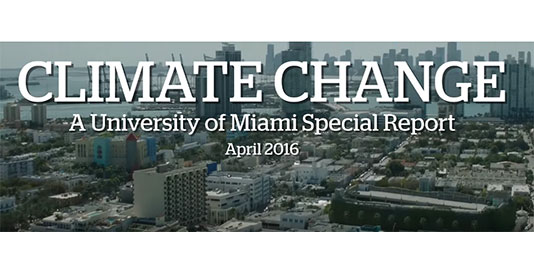 April 20, 2016 - The University of Miami's University Communications has released a Climate Change Special Report showcasing the work of the University's scientists, researchers, faculty, staff, students and alumni in the areas of climate change and sustainability.
April 20, 2016 - The University of Miami's University Communications has released a Climate Change Special Report showcasing the work of the University's scientists, researchers, faculty, staff, students and alumni in the areas of climate change and sustainability.
For nearly six months, a team of writers, editors, videographers, photographers, and web developers and designers worked on this report, which encompasses more than 40 articles, photo galleries, videos, and interactive polls and social engagement.
This report looks at the areas of ocean and atmospheric research, renewable energy options, sustainable design and infrastructure, the spread of vector-borne diseases and health concerns, and population migration impacted by the changing environment, among other topics of interest.
Dozens of sources were interviewed for this report, which quotes or mentions more than 70 faculty, students, alumni and staff, and touches all the University's 11 schools and colleges.
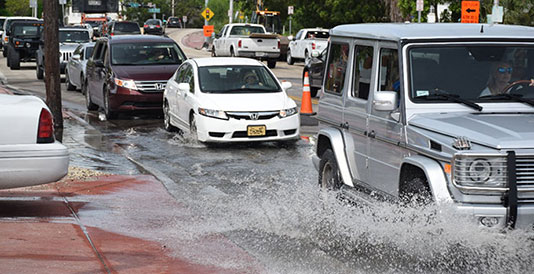 April 6, 2016 - A new University of Miami (UM) Rosenstiel School of Marine and Atmospheric Science-led study found that Miami Beach flood events have significantly increased over the last decade due to an acceleration of sea-level rise in South Florida. The researchers suggest that regional sea-level projections should be used in place of global projections to better prepare for future flood hazards in the region.
April 6, 2016 - A new University of Miami (UM) Rosenstiel School of Marine and Atmospheric Science-led study found that Miami Beach flood events have significantly increased over the last decade due to an acceleration of sea-level rise in South Florida. The researchers suggest that regional sea-level projections should be used in place of global projections to better prepare for future flood hazards in the region.
To quantify the flood hazard in Miami Beach, the UM Rosenstiel School researchers analyzed tide and rain-gauge records, media reports, insurance claims, and photos of flooding events on Miami Beach and in Miami since 2006. The insurance claims and media reports helped the researchers pinpoint the date and type of flood events.
“Our results show that the effect of sea-level rise is real and affecting the daily life of people living in low-lying coastal communities, such as Miami Beach,” said Shimon Wdowinski, UM Rosenstiel School research professor of marine geosciences, and lead author of the study.
The results showed that the flooding frequency in Miami Beach has significantly increased after 2006 mainly due to increasing number of high-tide flooding events. The increased flooding frequency coincides with acceleration in the rate of sea level rise in South Florida. The average rate of sea-level rise increased by 6 millimeters per year over the last decade - from 3 millimeters per year before 2006 to 9 millimeters per year after 2006.
The study’s additional co-authors are Ronald Bray and Ben P. Kirtman from the UM Rosenstiel School; and Zhaohua Wu from Florida State University.
Ocean & Coastal Management Journal Article
Photo Credit: Shimon Wdowinski, Ph.D.
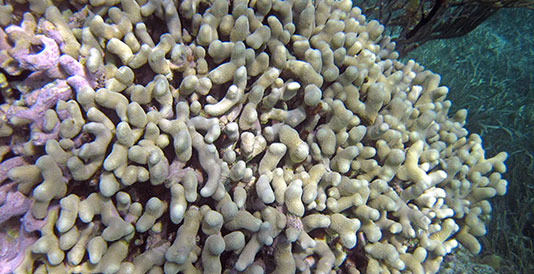 April 4, 2016 - A new study from researchers at the University of Miami (UM) Rosenstiel School of Marine and Atmospheric Science (RSMAS) found that multiple stressors might be too much for corals. The findings have important implications for the resilience of coral reefs to climate change.
April 4, 2016 - A new study from researchers at the University of Miami (UM) Rosenstiel School of Marine and Atmospheric Science (RSMAS) found that multiple stressors might be too much for corals. The findings have important implications for the resilience of coral reefs to climate change.
To test the coral’s response to multiple environmental stressors at once, UM Rosenstiel School researchers placed Caribbean branching coral Porites porites in waters with high levels of carbon dioxide (900 parts per million) for two months to mimic high ocean acidification conditions. Following the preconditioning, half of the corals were then subjected to increased water temperatures for two months. Following the five-month period, the researchers analyzed the growth, feeding rates, and photochemical efficiency of their algal symbionts in both groups to understand how they responded to multiple environmental stressors. Many previous studies have assessed the effects of multiple stressors, but this study is novel because it is the first to precondition corals to high CO2 before exposing them to a thermal bleaching event.
Corals preconditioned to high CO2 levels before the increased temperatures showed 44 percent lower growth rates compared to the group that only experienced a single stress of increased carbon dioxide. The researchers suggest that preconditioning to elevated CO2 worsens coral response to thermal stress, which could potentially exacerbate the effects of climate change stressors on coral reefs.
“This study is similar to what corals will likely experience in nature in the coming decades,” said Erica Towle, a UM alumna and lead author of the study. “The findings improve our understanding of how reefs will respond to climate change in the future.”
Marine Ecology Progress Series Journal Article
Photo Credit: James St. John
 March 29, 2016 - The National Academies of Sciences, Engineering, and Medicine has released a new report titled Next Generation Earth System Prediction: Strategies for Subseasonal to Seasonal Forecasts. The report was prepared by the Committee on Developing a U.S. Research Agenda to Advance Subseasonal to Seasonal Forecasting, which includes FCI co-director Dr. Eric Chassignet (FSU).
March 29, 2016 - The National Academies of Sciences, Engineering, and Medicine has released a new report titled Next Generation Earth System Prediction: Strategies for Subseasonal to Seasonal Forecasts. The report was prepared by the Committee on Developing a U.S. Research Agenda to Advance Subseasonal to Seasonal Forecasting, which includes FCI co-director Dr. Eric Chassignet (FSU).
Report Description:
As the nation’s economic activities, security concerns, and stewardship of natural resources become increasingly complex and globally interrelated, they become ever more sensitive to adverse impacts from weather, climate, and other natural phenomena. For several decades, forecasts with lead times of a few days for weather and other environmental phenomena have yielded valuable information to improve decision-making across all sectors of society. Developing the capability to forecast environmental conditions and disruptive events several weeks and months in advance could dramatically increase the value and benefit of environmental predictions, saving lives, protecting property, increasing economic vitality, protecting the environment, and informing policy choices.
Over the past decade, the ability to forecast weather and climate conditions on subseasonal to seasonal (S2S) timescales, i.e., two to fifty-two weeks in advance, has improved substantially. Although significant progress has been made, much work remains to make S2S predictions skillful enough, as well as optimally tailored and communicated, to enable widespread use. Next Generation Earth System Predictions presents a ten-year U.S. research agenda that increases the nation’s S2S research and modeling capability, advances S2S forecasting, and aids in decision making at medium and extended lead times.
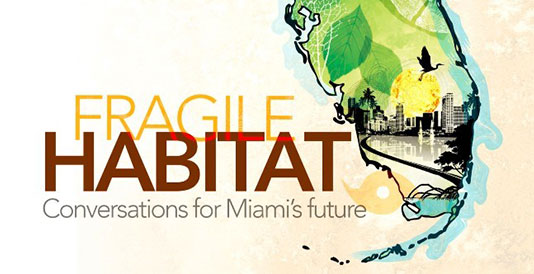 March 23, 2016 - The National Endowment for the Humanities (NEH) has chosen FIU’s History Department in the Steven J. Green School of International and Public Affairs (Green School) as the only Florida recipient of a Humanities in the Public Square grant. The grant funds a series of public events, programs, and conversations showing how the humanities can help us come to terms with the threats to Miami from climate change.
March 23, 2016 - The National Endowment for the Humanities (NEH) has chosen FIU’s History Department in the Steven J. Green School of International and Public Affairs (Green School) as the only Florida recipient of a Humanities in the Public Square grant. The grant funds a series of public events, programs, and conversations showing how the humanities can help us come to terms with the threats to Miami from climate change.
“We need more than science and policy right now,” said project director April Merleaux, environmental history professor at FIU. “With this NEH grant, FIU will be able to share another view of some of today’s most pressing issues. We look forward to engaging our community in these important conversations as we imagine our future in South Florida.”
Led by Merleaux and Rebecca Friedman, faculty fellow at FIU’s Office of the Provost and director of FIU’s Polish Lecture Series, FIU will team up with HistoryMiami Museum, the Wolfsonian-FIU, The Kampong, Vizcaya Museum & Gardens, Miami-Dade County Public Schools, Catalyst Miami, and the FIU Green Library Digital Collections Center. The project will feature faculty experts from the Green School, the College of Architecture + the Arts and the College of Arts, Sciences & Education.
A total of seven events will feature literary and religious studies experts, historians, philosophers, geographers and other scholars sharing their perspectives on risk, fear, hope and resilience, among other themes related to sea level rise and climate change.
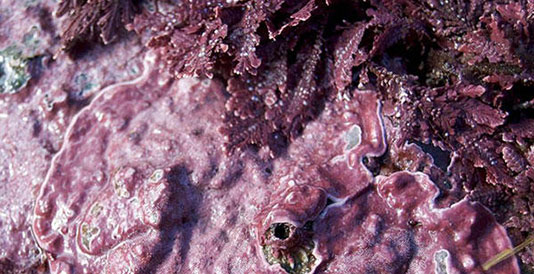 March 2, 2016 - Global climate change may actually be setting the stage for greater species diversity in the Pacific Northwest. And that could be both positive and negative, depending on the species.
March 2, 2016 - Global climate change may actually be setting the stage for greater species diversity in the Pacific Northwest. And that could be both positive and negative, depending on the species.
As the climate changes, scientists have been closely monitoring what happens as more carbon dioxide enters our waterways. In recognition of that issue, Florida State University Assistant Professor of Biological Science Sophie McCoy delved into old experiments that explained species diversity and how different species were competitive with one another. Noticing physical changes in the algae’s skeletal structures, she wanted to see if ongoing ocean acidification — the increase in carbon dioxide in the water — affected species interaction. The answer was yes. “Ocean acidification is promoting competition and no one is dominating,” McCoy said. The research is published today in the journal Proceedings of the Royal Society B.
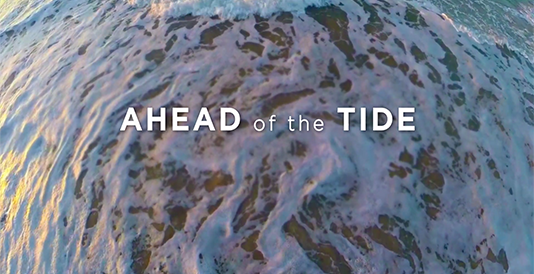 February 29, 2016 - The FCI is proud to be a partner in a new 10-part video series highlighting the effects of sea level rise and climate change through the stories and voices of local Floridians. Each short video (5 to 7 minutes) showcases various aspects concerning sea level rise and includes interviews with scientists (including FCI affiliates), engineers, politicians, conservation directors, educators, authors, activists.
February 29, 2016 - The FCI is proud to be a partner in a new 10-part video series highlighting the effects of sea level rise and climate change through the stories and voices of local Floridians. Each short video (5 to 7 minutes) showcases various aspects concerning sea level rise and includes interviews with scientists (including FCI affiliates), engineers, politicians, conservation directors, educators, authors, activists.
 February 29, 2016 - An NSF-funded project on the effects of climate, land use, and socioeconomic conditions on vector-borne disease transmission, such as the Zika virus, was featured in an NSF press release recently. Studying interacting factors allows researchers to understand the "risk landscape" for mosquito-transmitted diseases, according to Sadie Ryan, an ecologist and medical geographer at the University of Florida who is collaborating on the research. Taking a local approach then broadening it, the scientists believe, will allow them to find out when and where interventions -- such as in vector control, healthcare infrastructure, environmental modification, education, and climate change early warning systems -- may be most effective.
February 29, 2016 - An NSF-funded project on the effects of climate, land use, and socioeconomic conditions on vector-borne disease transmission, such as the Zika virus, was featured in an NSF press release recently. Studying interacting factors allows researchers to understand the "risk landscape" for mosquito-transmitted diseases, according to Sadie Ryan, an ecologist and medical geographer at the University of Florida who is collaborating on the research. Taking a local approach then broadening it, the scientists believe, will allow them to find out when and where interventions -- such as in vector control, healthcare infrastructure, environmental modification, education, and climate change early warning systems -- may be most effective.
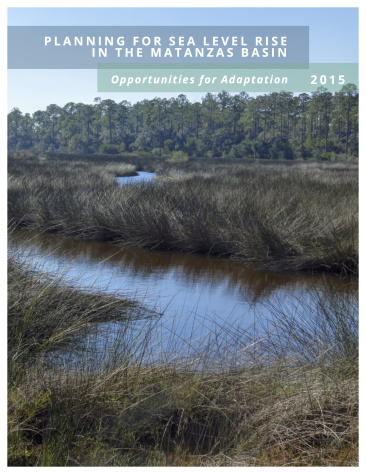 February 22, 2016 - The final project report for "Planning for Sea Level Rise in the Matanzas Basin: Opportunities for Adaptation" is now available online. The project was led by Dr. Kathryn Frank (UF) in collaboration with the Guana Tolomato Matanzas National Estuarine Research Reserve.
February 22, 2016 - The final project report for "Planning for Sea Level Rise in the Matanzas Basin: Opportunities for Adaptation" is now available online. The project was led by Dr. Kathryn Frank (UF) in collaboration with the Guana Tolomato Matanzas National Estuarine Research Reserve.The project investigated the Matanzas area’s vulnerability to sea level rise and identified potential adaptation strategies. The project was holistic in its geographic scope, including the Matanzas estuary, watershed, and adjacent communities, and its goals of fostering regional sustainability and resilience. The project integrated analyses of the major trends of sea level rise and population growth, and their effects on conservation priorities and development patterns, using the best available data and scientifically defensible computer models. The project was collaboratively guided by a stakeholder-based steering committee and a series of public workshops oriented towards Matanzas area interest sectors, residents, and youth. And, the project suggested spatially explicit adaptation strategies having the greatest relevance in the context of current local plans and governance capacities. The strategies spanned and interrelated the spatial planning fields of land conservation, smart growth and low impact development, and coastal hazard mitigation. The project’s main findings relate to the importance of the Matanzas Basin, its vulnerabilities, potential adaptation strategies, and current governance adaptive capacity.
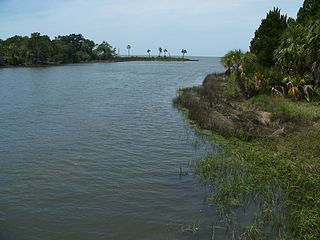 February 29, 2016 - As a result of a Florida Sea Grant annual meeting in Gainesville, partners in science, policy, and municipalities work together to achieve policy success.
February 29, 2016 - As a result of a Florida Sea Grant annual meeting in Gainesville, partners in science, policy, and municipalities work together to achieve policy success.In 2011, the Florida legislature amended the Growth Management Act and authorized communities to adopt coastal flooding/sea level rise “adaptation action areas” through their comprehensive plans. At the subsequent Sea Grant meeting, Whitney Gray proposed adapting this planning tool to a natural resources context. A UF team working on policy options took Whitney’s “thinking outside the box” idea to the small Gulf Coast community of Yankeetown, which embraced it. Yankeetown is somewhat unusual in that its municipal boundaries extend well into the Gulf of Mexico. The tam of UF scientists and law professors assisted the Town with a grant proposal that had creating a Natural Resources Adaptation Action Area (NRAAA) as a goal, and the development of a community-adopted “science plan” and “business plan” as steps toward that goal. The team then partnered with the Watershed Ecology Lab in the College of Engineering (Dr. David Kaplan) and Yankeetown received a planning grant from the Department of Economic Opportunity. They completed the science and business plans, both of which focused on adaptation, and both of which were adopted by resolution. The science plan included a community wide “bioblitz” to inventory the flora and fauna of the Town-owned Withlacoochee Gulf Preserve (ably assisted by Leroy Creswell). The Business Plan was designed to promote the Town and Preserve as a destination for “science-based education” focused on estuarine adaptation to sea level rise. They also drafted a model comprehensive plan amendment directed toward natural resources adaptation and worked with the Town attorney to tailor it to the Town’s circumstances as a “Natural Resources Adaptation Action Area.” The Town is a “hometown democracy town” which means that all of its comp plan amendments must be placed on the ballot for a referendum, a procedural mechanism subsequently prohibited by the Florida legislature. The Town voted on the comp plan amendment on February 23, 2016 and it passed overwhelmingly. A copy of the comp plan amendment may be downloaded below, along with a poster which describes the project. One reason for pursuing this planning tool comes from the opportunities it may provide to develop an Area-wide approach to restoration to promote adaptation, a concept UF leads are promoting at the upcoming 2016 National Conference on Ecosystem Restoration, and one which may make communities like Yankeetown that embrace this approach more attractive in terms of the funds coming to Florida through the BP spill settlement.
Submitted by Thomas T. Ankersen, Professor, UF Levin College of Law
Image Credit: Ebyabe; Source: https://en.wikipedia.org/wiki/File:Yankeetown_west01.jpg
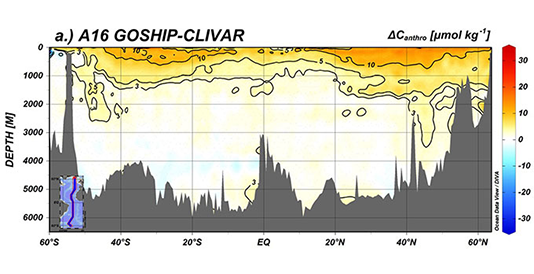 February 3, 2016 - A University of Miami (UM) Rosenstiel School of Marine and Atmospheric Science-led study shows that the North Atlantic absorbed 50 percent more human-made carbon dioxide over the last decade, compared to the previous decade. The findings show the impact that the burning of fossil fuels have had on the world's oceans in just 10 years. To determine the total uptake and storage of carbon dioxide in the North Atlantic over the last several decades, researchers analyzed data collected from the same locations, but 10 years apart, to identify changes caused by man-made CO2. The data were collected during two National Science Foundation-funded international ship-based studies, CLIVAR (Climate Variability CO2 Repeat Hydrography) and GO-SHIP (Global Ocean Ship-Based Hydrographic Investigations Program).
February 3, 2016 - A University of Miami (UM) Rosenstiel School of Marine and Atmospheric Science-led study shows that the North Atlantic absorbed 50 percent more human-made carbon dioxide over the last decade, compared to the previous decade. The findings show the impact that the burning of fossil fuels have had on the world's oceans in just 10 years. To determine the total uptake and storage of carbon dioxide in the North Atlantic over the last several decades, researchers analyzed data collected from the same locations, but 10 years apart, to identify changes caused by man-made CO2. The data were collected during two National Science Foundation-funded international ship-based studies, CLIVAR (Climate Variability CO2 Repeat Hydrography) and GO-SHIP (Global Ocean Ship-Based Hydrographic Investigations Program).“This study shows the large impact all of us are having on the environment and that our use of fossil fuels isn’t only causing the climate to change, but also affects the oceans by decreasing the pH,” said Ryan Woosley, a researcher in the UM Rosenstiel School, Department of Ocean Sciences.












